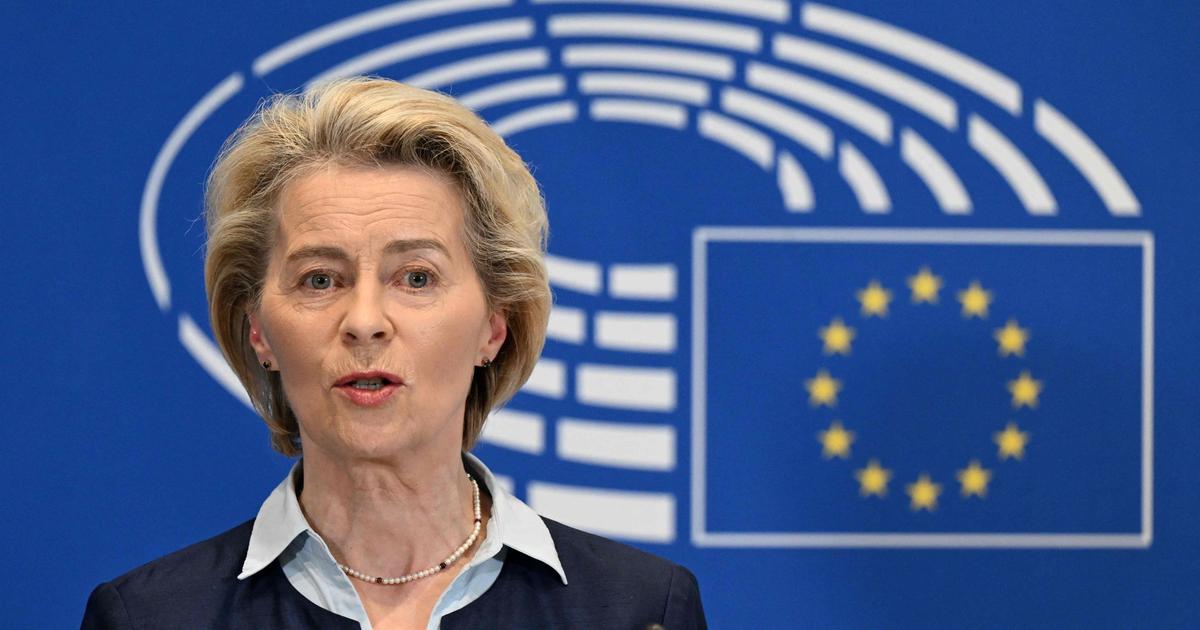This column is signed by the German, Belgian, Italian, Spanish and Portuguese labor ministers as well as several European parliamentarians and published within the framework of the Leading European Newspaper Alliance (LENA), a common network launched by seven major European dailies, in order to “ pool their journalistic skills and promote quality journalism in Europe ”.
On December 8, the European Commission will present its long-awaited directive on improving the working conditions of digital platform workers.
Often, digital platform workers do not even earn the minimum wage, are not covered by collective agreements, are not entitled to any paid leave, are exposed to health and safety risks, are not entitled to sick leave or do not benefit from social security protection. Often working hours are long, and in some platforms a large gender pay gap and other types of discrimination are either tolerated or reinforced through algorithmic biases. These companies attract workers from vulnerable groups who are forced to accept low wages knowing that otherwise someone else will take their job.
Rules need to be defined to ensure that digital work platforms cannot exploit loopholes in legislation that allow them to reap significant profits by employing bogus freelancers.
Signatories of the platform
Digital work platforms are only sustainable if they offer quality jobs and respect workers' rights. Very few platforms only work with truly independent workers. It is therefore necessary to define rules to ensure that digital work platforms cannot exploit the loopholes in the legislation allowing them to reap significant profits by employing bogus self-employed in order to avoid sectoral obligations in matters of fair remuneration, working conditions and social security. This practice is not only unfair to workers but also to a large majority of companies, which follow the rules, and to society as a whole.
Meal delivery, taxi services and housework are just the tip of the iceberg: digital work platforms are growing in the commerce, engineering, nursing, construction and service industries. We are also witnessing a so-called “platformization” in other sectors where practices such as job fragmentation of jobs and extreme flexibility are gaining ground. This is one more reason for the need for European legislation. The European Parliament, Member States, unions and organizations all over Europe are making it clear that it does notThere is neither space nor need to create a third category of workers between employees and self-employed because this would deprive these workers of adequate protection and autonomy.
Read also Olivier Babeau: "Labor law must evolve to support platform workers"
In Europe, an overwhelming majority of court decisions have demonstrated very clearly that platform companies are employers and that their workers should enjoy the same rights as employees.
The announced directive must conform to this approach.
The starting point for legal and policy measures should be that every digital workplace is or can become an employer.
The European Commission must establish a presumption of wage-earning which fixes the status of employee as a starting point. The burden of proof should be shifted from the worker to the digital platform. Steps have been taken in this direction in various European states. This means that workers in platform companies are in principle employees unless the platforms can prove self-employment. This would change from the current situation of presumed self-employment where platform workers are deliberately misclassified as self-employed and have to prove that they are in fact in a salaried employment relationship.
A caveat is in order to avoid potential misunderstandings: A rebuttable presumption of wage employment does not mean that all workers will be considered employees.
The business model of platform companies operating with true self-employed workers will not be affected as long as they can prove that there is no dependency relationship.
The algorithms that set the price of services and decide the division of labor function like black boxes for workers.
The constant control and importance of ratings generates extreme pressure and stress.
Signatories of the platform
Any watered down solution would bring little or no change as the most vulnerable part of the employment relationship - the worker - would have to initiate the process.
Algorithms are used as management tools by digital work platforms which has a significant impact on rights and working conditions.
The algorithms that set the price of services and decide the division of labor function like black boxes for workers.
The constant control and importance of ratings generates extreme pressure and stress.
The central role of the algorithm is what distinguishes platform work from other types of work. If the European Commission is serious about improving the situation of platform workers, the regulation of algorithmic management should be a key part of its proposal. Digital platforms should be transparent about how their algorithm sets prices and allocates labor, including what factors are taken into account. Because it sets working conditions, workers and their unions should have a say in how the algorithm works. The latter should also never be able to dismiss workers. Platform workers should also maintain control over their personal data and data thatthey generate when they are active on the platform.
Read also Uber Eats settles in small towns: quite a symbol
To address the lack of information on how digital work platforms operate in the EU, they should be subject to the obligation to register with a public authority and ensure transparency key data of their activities.
Digital work platforms operate transnationally and therefore a European solution is needed.
This would avoid fragmented legislation between Member States which would only aggravate the race to the bottom on rights.
The signatories of this letter call on the European Commission to ensure that digital platforms are subject to the same rules as any other “offline” business operating in a cross-border framework, whether in labor law, legislation social or fiscal.
In order for workers to have their fair share, and for a sustainable economic model to develop across Europe, through or without an “app”, demanding standards for digital platforms need to be defined.
Signatories:
Pierre-Yves Dermagne (Deputy Prime Minister and Minister of the Economy and Labor, Belgium)
Yolanda Díaz (Minister of Labor and Social Economy, Spain)
Ana Mendes Godinho (Minister of Labor, Solidarity and Social Security, Portugal)
Hubertus Heil (Federal Minister of Labor and Social Affairs, Germany)
Andrea Orlando (Minister of Labor and Social Policies, Italy) Labor)
Luca Visentini (General Secretary of the European Trade Union Confederation, Italy)
Ludovic Voet (Confederal Secretary at the European Trade Union Confederation, Belgium)
Iratxe García Pérez (MEP, S&D, Partido Socialista Obrero Español, Spain)
Sergei Stanishev (MEP, President of the Party of European Socialists, Bulgaria)
Ska Keller (MEP, co-chair of the Group of the Greens / European Free Alliance, Die Grünen, Germany)
MEP Philippe Lamberts (MEP, co-chair of the Group of the Greens / European Free Alliance, Ecolo, Belgium)
Manon Aubry (MEP, co-chair of the Groupe de La Gauche, La France Insoumise, France)
Martin Schirdewan (MEP, co-chair of the Left Group, Die Linke, Germany)
Agnes Jongerius (MEP, S&D, Partij van de Arbeid, Netherlands)
Dennis Radtke (MEP, EPP, CDU, Germany)
Kira Marie Peter-Hansen (MEP, Group of the Greens / European Free Alliance, Socialistisk Folkeparti, Denmark)
Nikolaj Villumsen (MEP, The Left, Enhedslisten, Denmark)
Elisabetta Gualmini (MEP, S&D, Partido Democratico, Italy)
Kim Van Sparrentak (MEP, Group of the Greens / European Free Alliance, GroenLinks, Netherlands)
Leïla Chaibi (MEP, La Gauche, La France Insoumise, France)















